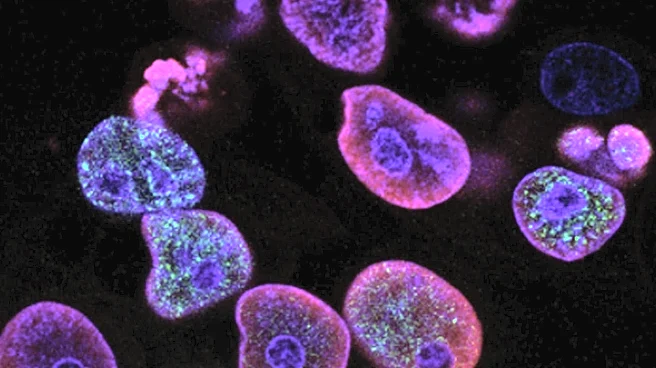What's Happening?
Research published in Nature explores the role of fumarate in renal cancer cells deficient in fumarate hydratase (FH). The study reveals that fumarate inhibits the activity of the histone demethylase KDM4C, leading to increased levels of histone 3 lysine 36 trimethylation (H3K36me3). This upregulation activates the IL-6/JAK/STAT3 oncogenic signaling pathway, enhancing the expression of chemokine CXCL10 and programmed cell death ligand 1 (PD-L1). The findings suggest that combining immune checkpoint blockade with a STAT3 inhibitor may be promising for patients with FH-deficient renal cell carcinoma.
Why It's Important?
The study provides insights into the molecular mechanisms underlying renal cancer progression in FH-deficient cells. Understanding how fumarate influences oncogenic pathways can inform the development of targeted therapies. The activation of the IL-6/JAK/STAT3 pathway and increased PD-L1 expression highlight potential therapeutic targets for improving treatment outcomes in renal cancer patients. This research could lead to more effective combination therapies, enhancing the efficacy of existing cancer treatments.
What's Next?
Further research is needed to explore the therapeutic potential of combining immune checkpoint inhibitors with STAT3 inhibitors in renal cancer treatment. Clinical trials may be conducted to evaluate the efficacy and safety of these combination therapies. Additionally, studies could investigate the broader applicability of these findings to other cancer types with similar molecular characteristics.










